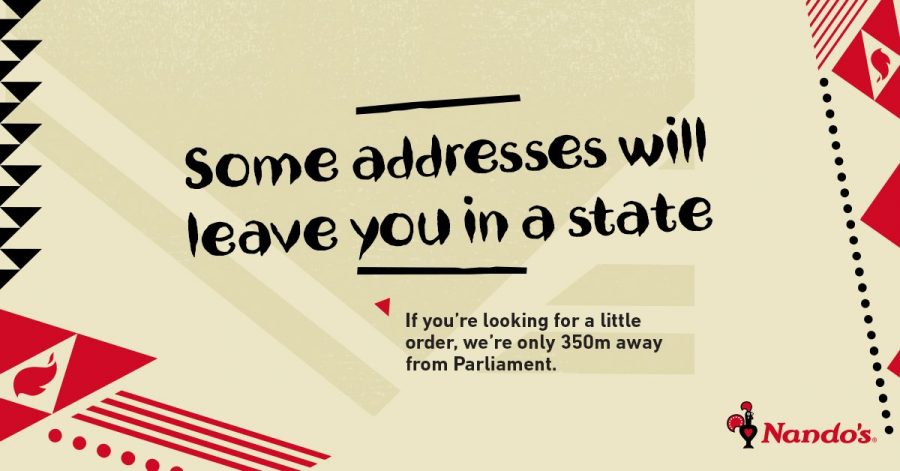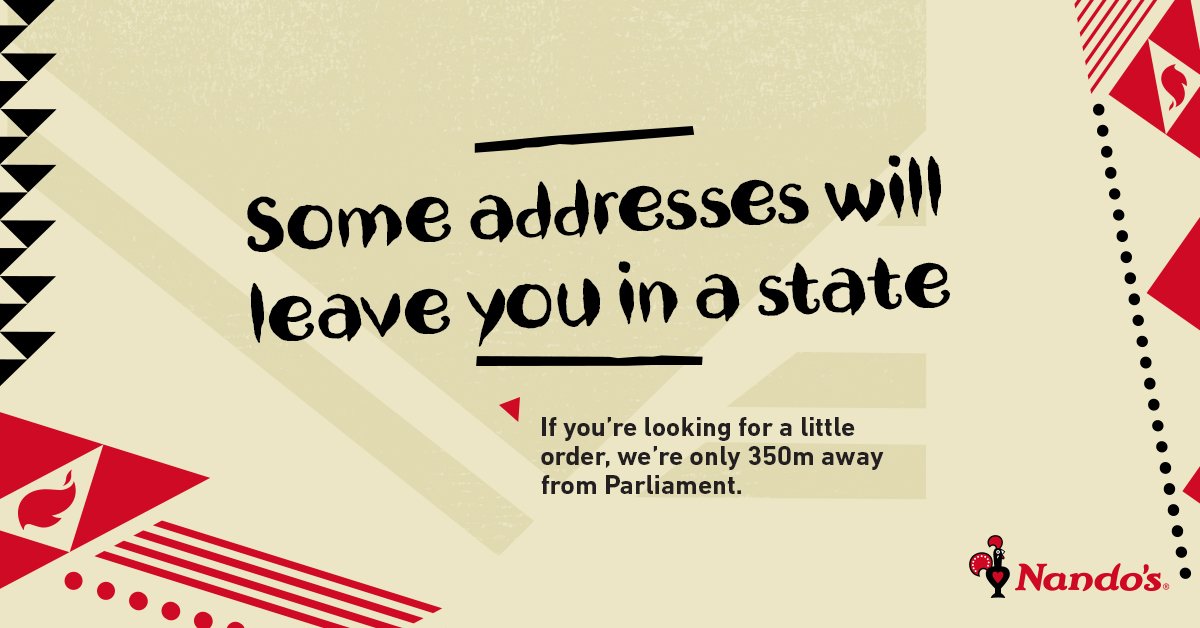
Nando’s Does It Again… As Zuma Announces RADICAL Economic Transformation
CAPE TOWN – After the State of the Nation Address (SONA) in which President Jacob Zuma announced that radical economic transformation is coming South Africa’s way, Nando’s delivered again… with an ad saying “Some addresses will leave you in a state”. During SONA2017, President Zuma declared, in his annual address to the nation, that “today […]

CAPE TOWN – After the State of the Nation Address (SONA) in which President Jacob Zuma announced that radical economic transformation is coming South Africa’s way, Nando’s delivered again… with an ad saying “Some addresses will leave you in a state”.
During SONA2017, President Zuma declared, in his annual address to the nation, that “today we are beginning a new chapter of radical transformation, the state will play a role in the economy to drive that transformation.”
Thursday’s State of the Nation Address, delivered at a joint seating of parliament, comes at a time when the economy is not growing fast enough to create much needed jobs in the country.
President Zuma said the government anticipates an economic growth rate of 1.3% in 2017. But, unemployment remains a huge challenge, hence Government’s nine-point plan to reignite growth so the economy can create jobs, he said. He said the time had come for the state to move a step further to ensure an overhaul of the economic structure of the country for the benefit of all citizens – not just a few.
“The gap between the annual average household incomes of African-headed households and their white counterparts remains shockingly huge.
“White households earn at least five times more than black households, according to Statistics SA.
“The situation with regards to the ownership of the economy also mirrors that of household incomes. Only ten percent of the top one hundred companies on the Johannesburg Stock Exchange are owned by black South Africans, directly-achieved principally, through the black empowerment codes, according to the National Empowerment Fund,” President Zuma said.
Economic inequalities persist
He spoke at length about a cluster of issues that still faced the South African economy and these need to be addressed if the country is to address the socio economic challenges it faces. These include, among others, the issue of inequality in the workplace and an uneven redistribution of wealth.
“The pace of transformation in the workplace, the implementation of affirmative action policies as required by the Employment Equity Act, also remains very slow. At the level of gender at senior management level, males remain dominant at 67.6% and females at 32.4% percent.”
The President expressed discomfort over the fact that the representation of whites at top management level amounted to 72 percent whilst African representation was at 10 percent, according to the 2015/16 information submitted to the Employment Equity Commission. The representation of Coloureds stood at 4.5% and Indians 8.7%.
President Zuma told the house, bluntly, that the skewed nature of economic ownership and leadership patterns needed to be corrected. There could be no sustainability in any economy if the majority is excluded, he said.
“In my discussions with the business community, they accepted these transformation imperatives. Today we are starting a new chapter of radical socio-economic transformation. We are saying that we should move beyond words, to practical programmes.”
The state will play a role in the economy to drive that transformation. In this regard, Government will utilise to the maximum, the strategic levers that are available to the state,” said President said.
Land redistribution
One of the most notable aspects of Thursday’s speech was probably the President’s statement the state will increase its power to use the Expropriation Act to pursue land reform and land redistribution, in line with the Constitution.
“It will be difficult if not impossible, to achieve true reconciliation until the land question is resolved.
“Only eight million hectares of arable land have been transferred to black people, which is only 9.8 percent of the 82 million hectares of arable land in South Africa.
“There has also been a 19 percent decline in households involved in agriculture from 2,9 million in 2011 to 2,3 million households in 2016.”
Since 1994, government has transferred millions of hectares of land back to the black majority who were removed from their ancestral land. But some feel that the pace of redistribution has not been fast enough.
President Zuma said going forward, government will continue to implement other programmes such as the Strengthening of Relatives Rights programme, also known as the 50-50 programme.
In this programme, the farm workers join together into a legal entity and together with the farm owner a new company is established and the workers and the owner become joint owners.
President Zuma renewed the call for land claimants to accept land instead of financial compensation. Over 90% of claims are currently settled through financial compensation which does not help the process at all.
“It perpetuates dispossession. It also undermines economic empowerment,” he said. –SAnews.gov.za
#SONA2017 pic.twitter.com/LAZgVbibKl
— NandosSA (@NandosSA) February 9, 2017